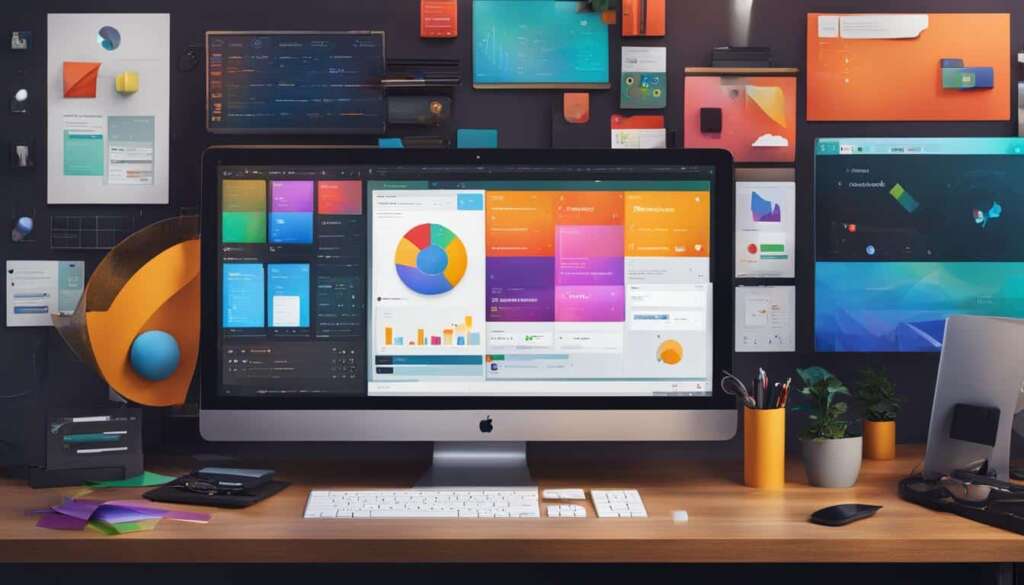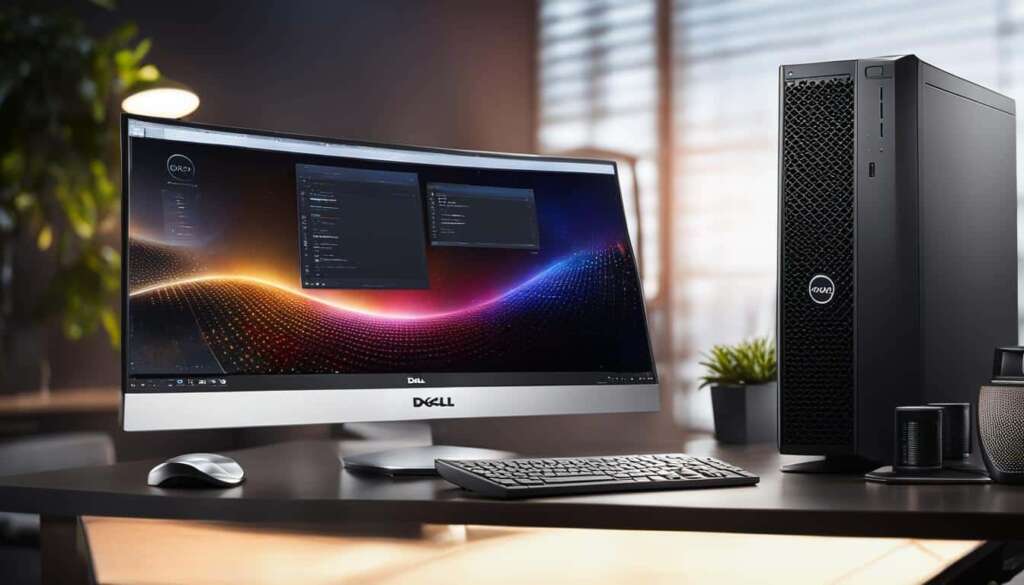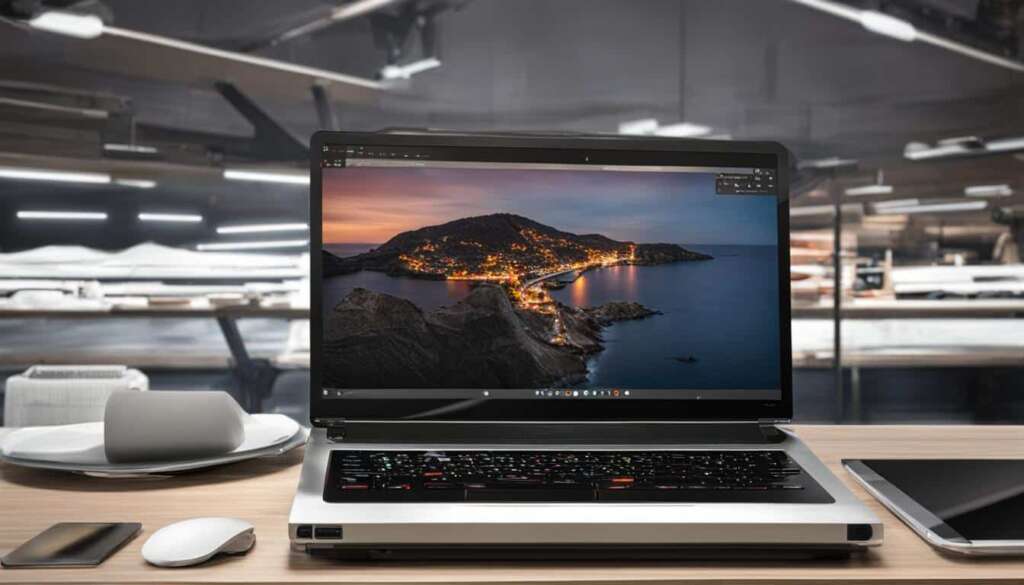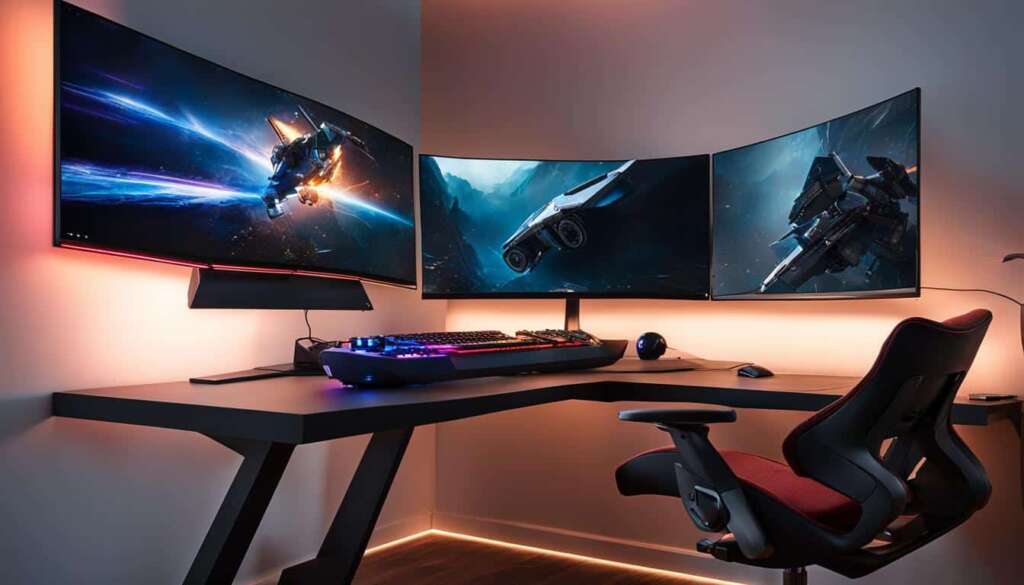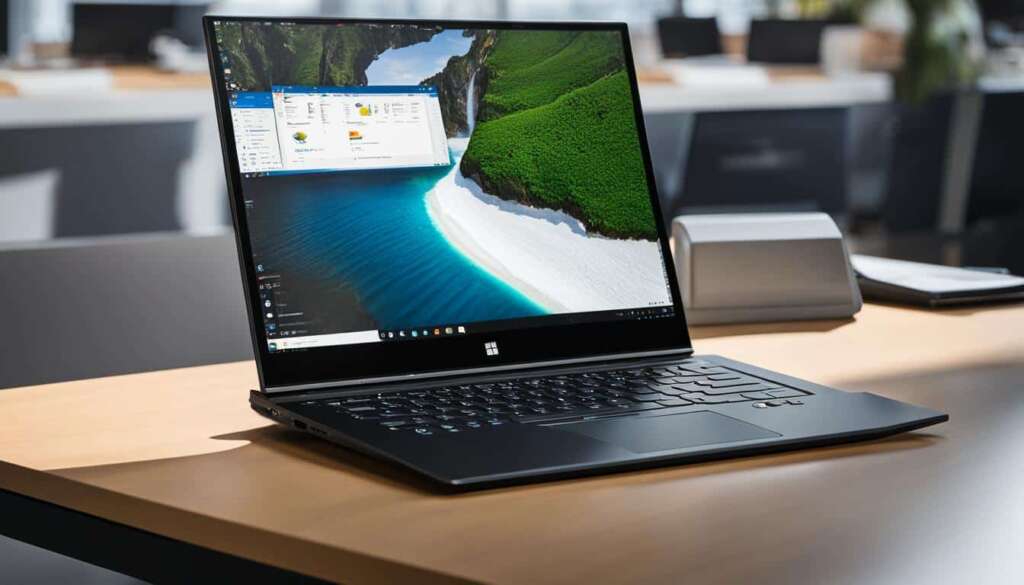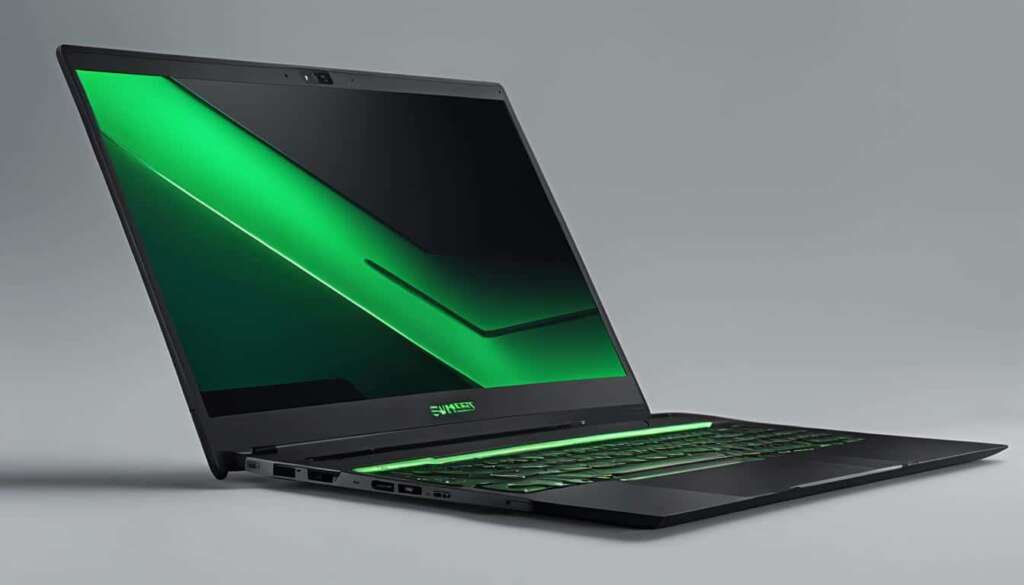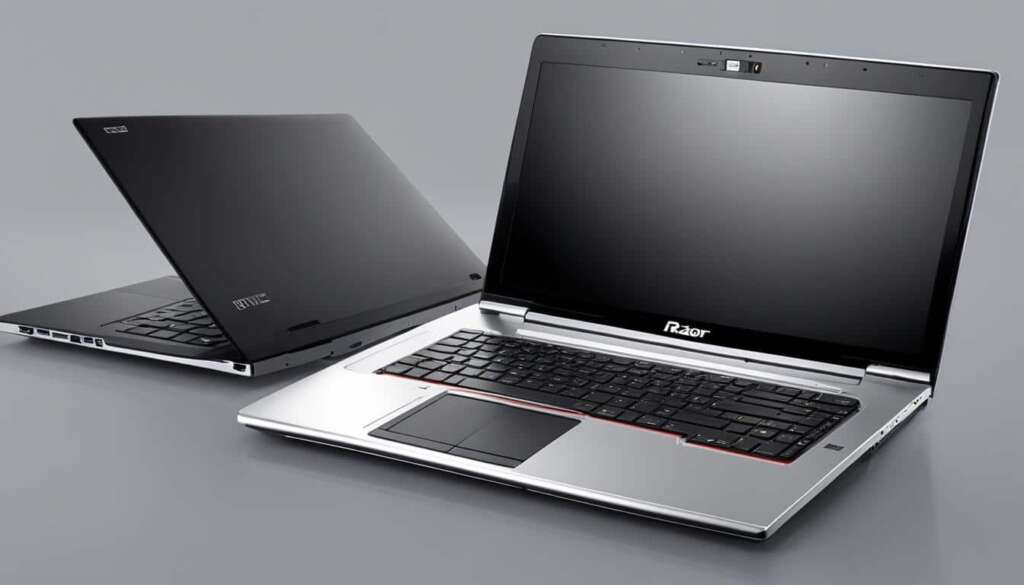Table of Contents
Welcome to our exciting journey into the world of desktop computers. In this article, we will explore the definition and unique features of desktops, and how they can unlock your potential. Whether you’re a gamer, a creative professional, or a multitasking enthusiast, understanding the power of a desktop computer is the key to unleashing your true capabilities.
But first, let’s answer the fundamental question: What is a desktop? A desktop refers to a computer specifically designed to be used on a desk or table, as opposed to a laptop or mobile device.
Unlike its portable counterparts, a desktop comprises a separate monitor, keyboard, mouse, and a computer tower or CPU.
Desktops are renowned for their power and performance, making them the preferred choice for tasks that demand intensive computing, such as gaming, video editing, and graphic design. With their larger screen size, increased storage space, and ability to easily upgrade components, desktops offer unparalleled advantages. Understanding the definition of a desktop is vital to uncovering its unique features and unlocking your full potential in the digital realm.
Features of a Desktop
Desktop computers offer a multitude of features that make them stand out from other devices. These features provide numerous advantages for users, enhancing performance, connectivity, and customization options.
1. Enhanced Processing Power and Storage Capacity
Desktops generally have superior processing power and storage capacity compared to laptops or tablets.
Thanks to their larger form factor, desktops can accommodate high-performance components such as powerful processors and ample storage drives. This results in faster and more efficient performance, particularly when handling resource-intensive tasks like gaming, video editing, or graphic design.
2. Immersive Visual Experience
Desktops often boast larger screen sizes than other devices, providing a more immersive visual experience.
A larger screen size is especially advantageous for multimedia tasks, as it allows for better image quality, cinematic gaming experiences, and improved multitasking capabilities. This heightened visual experience enhances productivity and enjoyment, making desktops an ideal choice for creative professionals and avid gamers.
3. Diverse Connectivity Options
Desktops offer a wide range of connectivity options, including multiple USB ports, facilitating easy connection of peripherals and devices.
With numerous USB ports, users can effortlessly connect external devices such as printers, scanners, keyboards, mice, and other accessories. This allows for seamless integration of various tools and peripherals, expanding the functionality and versatility of the desktop.
4. Customizability and Easy Upgrades
Desktops are highly customizable and offer easy upgradability, enabling users to adapt their system to their specific needs.
Unlike laptops or tablets, desktop computers can be easily upgraded with new components, such as processors, graphics cards, and memory modules, to keep up with evolving technology and demanding software requirements. This flexibility allows users to tailor their desktops to their unique preferences and computing requirements, resulting in a personalized and optimal user experience.
Desktop vs Laptop
When comparing desktops and laptops, there are several key differences to consider. Desktop computers are typically larger and less portable than laptops, making them better suited for stationary use. Laptops, on the other hand, are designed for mobility and allow users to work or play on-the-go.
In terms of performance, desktops often have more processing power and storage capacity than laptops, thanks to their larger size. This makes desktops the preferred choice for power-hungry tasks such as gaming, video editing, and graphic design. Laptops, however, offer the convenience of portability and are a better choice for those who require a device for travel or work on the move.
Ultimately, the choice between a desktop and laptop depends on the user’s specific needs and preferences. If performance and expandability are top priorities, a desktop is the way to go. On the other hand, if portability and versatility are more important, a laptop would be the better option.
Desktop vs Laptop Comparison
| Factors | Desktop | Laptop |
|---|---|---|
| Size and Portability | Larger and less portable | Compact and highly portable |
| Performance | More processing power and storage capacity | Less powerful but still capable |
| Upgrade and Customization | Easily upgradeable and customizable | Limited upgrade options |
| Connectivity | More ports and connectivity options | Limited ports and connectivity |
| Price | Generally more affordable | Can be more expensive |
As seen in the comparison table, each type of computer has its own strengths and weaknesses. The choice ultimately boils down to individual preferences and requirements.
Whether you need a powerful workstation for resource-intensive tasks or a portable device for on-the-go productivity, carefully consider your needs and make an informed decision based on the advantages and limitations of each option.
How to Choose a Desktop
Choosing the right desktop computer can be a daunting task, but considering a few key factors can help make the decision easier.
- Determine the purpose of the desktop: Before diving into the world of desktop computers, it’s important to identify the primary use of the device. Whether you need it for gaming, work, or multimedia, understanding the purpose will help narrow down the specifications needed for optimal performance. Consider factors such as processor speed, RAM, and graphics capabilities.
- Consider your budget: Budget plays a crucial role in choosing a desktop computer. Determine how much you are willing to spend and explore options within that range. Desktops can vary in price depending on the brand and features, so it’s important to find a balance between affordability and performance.
- Research the best desktop brands: It’s always beneficial to gather information about the top desktop brands in the market. Look for brands that have a reputation for reliability, durability, and excellent customer satisfaction. Reading reviews and testimonials from other users can provide valuable insights into the overall performance and quality of the desktop.
- Review desktop buying guides: Desktop buying guides are a great resource to gain a deeper understanding of the different features and specifications to consider when choosing a desktop computer. These guides often highlight the key factors to evaluate, helping you make an informed decision that aligns with your needs and preferences.
By following these steps, you can confidently choose a desktop computer that meets your requirements, fits your budget, and delivers an exceptional computing experience.
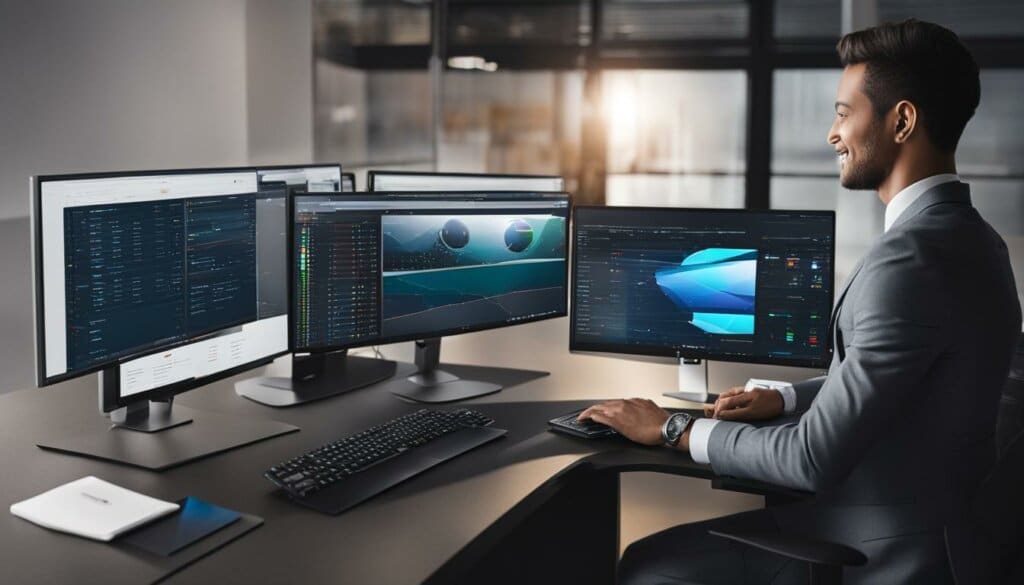
The Future of Desktop Computing
The future of desktop computing is evolving with advancements in technology. While laptops and mobile devices continue to gain popularity, desktops still have a special place in the digital landscape. Their power, performance, and unique features make them a reliable choice for many users.
One interesting trend that is emerging is the integration of virtual desktop infrastructure (VDI) in various sectors, including higher education. VDIs offer secure access to applications and software across multiple devices, eliminating the need for individual installations. This not only enhances convenience but also improves efficiency and productivity.
Looking ahead, desktops are expected to incorporate more powerful processors, increased storage capacity, and improved graphics capabilities. With technological advancements, users can anticipate faster and more responsive systems that can handle resource-intensive tasks with ease.
The future of desktop computing is not just limited to hardware advancements. Software innovations are also driving desktop trends. Cloud-based solutions are becoming increasingly prevalent, allowing users to access their files, applications, and data from any device with an internet connection. This flexibility further strengthens the position of desktops in the digital ecosystem.
As technology continues to advance, desktop computers will likely adapt and offer even more enhanced performance, efficiency, and features. They will remain a valuable tool for professionals, gamers, and anyone seeking a high-performance computing experience.
Benefits of Desktop Computers
Desktop computers offer a multitude of benefits that make them a popular choice among users. Their power, performance, and versatility make them an ideal tool for various tasks, whether you’re a professional in need of a high-performance machine or a casual user looking for a reliable device. Let’s explore the key advantages that desktop computers bring to the table.
1. Enhanced Visual Experience
One of the significant benefits of desktop computers is their larger screens and higher resolutions, which provide a superior visual experience. Whether you’re gaming, video editing, or multitasking, the larger screen size and improved clarity allow for a more immersive and enjoyable experience. As a result, desktop computers are often preferred by gamers, graphic designers, and anyone who values exceptional visual quality.
2. Ample Storage Space
Desktops typically offer more storage space compared to laptops or other portable devices. This additional storage capacity allows you to store large files, such as high-resolution videos, extensive photo libraries, or resource-intensive software programs. Having ample storage space on your desktop computer ensures that you can keep all your important files and applications in one place, without the need for external storage devices.
3. Efficient Cooling Systems
Resource-intensive tasks like gaming or video editing can put a strain on a computer’s components, leading to overheating. However, desktop computers are designed with efficient cooling systems to mitigate this issue. They usually feature multiple fans and larger cooling systems, ensuring proper ventilation and preventing overheating during demanding computing tasks. This cooling efficiency not only prolongs the lifespan of your desktop but also ensures optimal performance even during prolonged use.
4. Customizability and Upgradability
One of the most appealing aspects of desktop computers is their high level of customizability and upgradability. Unlike laptops or other devices, desktops allow users to easily switch out components and upgrade various hardware elements. Whether you want to enhance processing power, increase storage capacity, or improve graphics capabilities, desktop computers offer the flexibility to adapt to your evolving needs. This customizability ensures that your desktop can keep up with the latest technology and remain relevant for years to come.
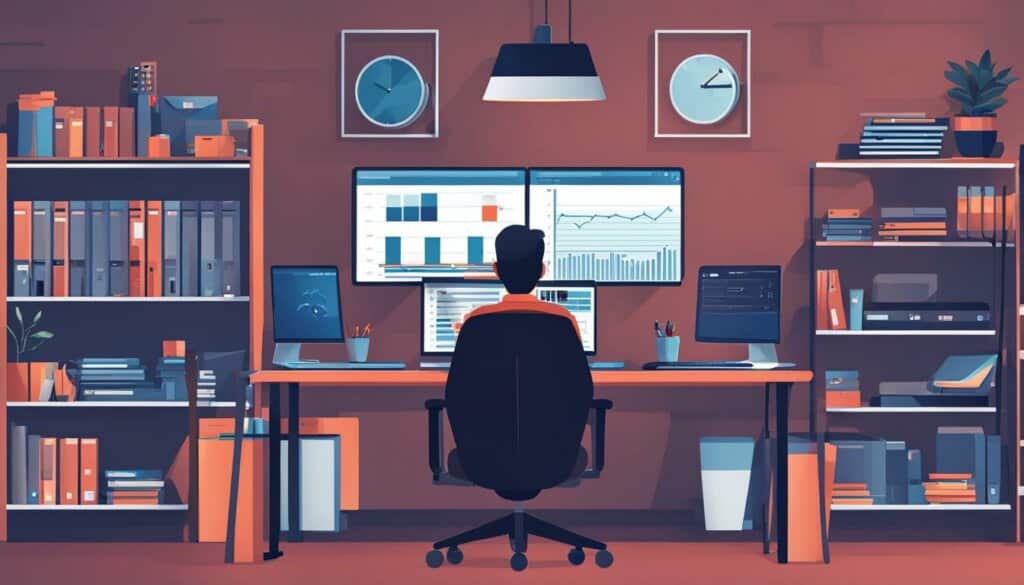
In conclusion, desktop computers provide several notable benefits that set them apart from other computing options. The enhanced visual experience, ample storage space, efficient cooling systems, and customizability make desktops a preferred choice for professionals and enthusiasts alike. Their power, performance, and versatility contribute to a seamless computing experience, regardless of the tasks you need to accomplish. Discover the benefits of a desktop computer and unlock your full potential.
Conclusion
In conclusion, a desktop computer is a powerful and versatile device that offers numerous advantages over other computing options. Its larger size, increased processing power, and storage capacity make it ideal for high-performance tasks, such as gaming, graphic design, and video editing. The benefits of a desktop computer are evident in its ability to provide an immersive visual experience with larger screens and higher resolutions. Additionally, desktops offer ample storage space for storing large files and programs, ensuring seamless workflow.
While laptops and mobile devices are popular choices for their portability, desktops have unique features that cater to the needs of users in the digital age. The ability to easily upgrade components allows users to adapt their desktops to their specific requirements, ensuring longevity and performance. Furthermore, desktops provide better cooling systems, preventing overheating during resource-intensive tasks, thus enhancing reliability.
Looking towards the future, the desktop computing landscape is poised for evolution and adaptation. Advancements such as virtual desktop infrastructure offer secure access to applications and software across multiple devices, transforming the way we work and study. Desktop computers are expected to continue integrating more powerful processors, increased storage capacity, and improved graphics capabilities. As technology progresses, desktops will remain a valuable tool, empowering users to unlock their potential in various fields, be it work, entertainment, or education.
FAQ
What is a desktop?
A desktop refers to a type of computer that is designed to be used on a desk or table, as opposed to a laptop or mobile device. It typically consists of a separate monitor, keyboard, mouse, and a computer tower or CPU.
What are the features of a desktop?
Desktop computers generally have better processing power and storage capacity compared to laptops or tablets. They often have a larger screen size, more connectivity options, and the ability to easily upgrade components.
How does a desktop compare to a laptop?
Desktop computers are larger and less portable than laptops, making them better suited for stationary use. They offer more processing power and storage capacity, while laptops provide the convenience of mobility.
How do I choose the right desktop?
When choosing a desktop, it’s important to consider the intended purpose, budget, and specifications needed, such as processor speed, RAM, and graphics capabilities. Researching the best desktop brands and reading customer reviews can also help inform the decision.
What is the future of desktop computing?
The future of desktop computing is evolving with advancements in technology. Trends include the integration of virtual desktop infrastructure (VDI) and improvements in processors, storage capacity, and graphics capabilities.
What are the benefits of desktop computers?
Desktop computers offer a larger screen size, better visual experience, more storage space, and the ability to easily upgrade components. They also have better cooling systems and are highly customizable, making them versatile for various tasks.

